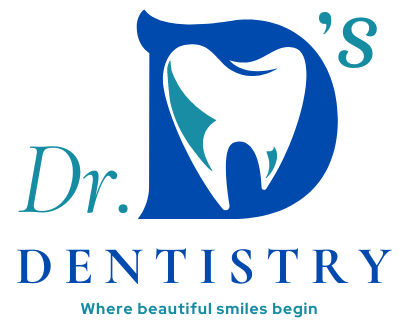Tips to maintain healthy teeth
Maintaining a dazzling smile isn’t just about brushing and flossing. What you eat plays a huge role in your dental health. In this article, we’ll dive into the best and worst foods for keeping your teeth healthy and strong, focusing on the “Healthy Teeth Diet.” Let’s explore how your diet impacts your teeth and which foods you should be munching on to keep that smile bright.

Understanding Dental Health
The Structure of Teeth
Your teeth are more than just those white things you see when you smile. Each tooth has multiple layers: enamel, dentin, pulp, and cementum. Enamel is the hard outer layer that protects your teeth from decay. It’s the hardest substance in the human body, but it’s not invincible. Taking care of it is essential for avoiding dental problems.
Common Dental Problems
We’ve all been there: a sudden twinge when you sip a cold drink or a dull ache that just won’t quit. Common dental problems include cavities, gum disease, and enamel erosion. These issues can often be traced back to poor diet and oral hygiene habits. Knowing what causes these problems is the first step in preventing them.
The Role of Diet in Dental Health
How Diet Affects Teeth
Your diet directly impacts your teeth and gums. Consuming sugary, acidic, or starchy foods can lead to plaque buildup, which erodes enamel and causes cavities. On the flip side, eating foods rich in vitamins and minerals can strengthen your teeth and gums, keeping them healthy for life.
Importance of a Balanced Diet
A balanced diet isn’t just good for your waistline; it’s crucial for your dental health too. Foods that are high in essential nutrients like calcium, phosphorus, and vitamins A and C contribute to stronger, healthier teeth. Incorporating a variety of these nutrients into your diet can help maintain optimal dental health.
Top Foods for Healthy Teeth
Dairy Products
Dairy products are a powerhouse of calcium and vitamin D, which are vital for strong teeth and bones. Milk, cheese, and yogurt not only provide these essential nutrients but also help to neutralize acids in the mouth, reducing the risk of cavities.
Crunchy Fruits and Vegetables
Crunchy fruits and vegetables like apples, carrots, and celery are great for your teeth. Their natural crunch helps to clean your teeth as you eat, and they stimulate saliva production, which washes away food particles and bacteria.
Nuts and Seeds
Nuts and seeds are fantastic snacks for dental health. Almonds, walnuts, and chia seeds are packed with essential nutrients like calcium, magnesium, and phosphorus, which are crucial for maintaining strong teeth and bones.
Leafy Greens
Leafy greens such as spinach and kale are high in calcium and folic acid, making them excellent for dental health. These greens help to strengthen your enamel and gums, keeping your teeth healthy and strong.
Fish and Lean Meats
Fish and lean meats like salmon and chicken are rich in phosphorus and protein, essential for maintaining healthy teeth. Phosphorus works with calcium to build strong bones and teeth, while protein is vital for overall health and repair.
Foods to Avoid for Dental Health
Sugary Snacks and Drinks
Sugar is the number one enemy of dental health. It feeds the harmful bacteria in your mouth, leading to plaque buildup and tooth decay. Avoiding sugary snacks like candy and drinks like soda can significantly reduce your risk of cavities.
Acidic Foods and Drinks
Acidic foods and drinks, such as citrus fruits and vinegar, can erode your enamel over time. While these foods can be part of a healthy diet, it’s important to consume them in moderation and rinse your mouth with water afterward to neutralize the acid.
Starchy Foods
Starchy foods like bread and potato chips can get stuck in your teeth, leading to plaque buildup. These foods break down into sugar, feeding harmful bacteria in your mouth. Opting for whole grains can be a better choice for your dental health.
Healthy Eating Habits for Dental Health
Balanced Meals
Eating balanced meals that include a variety of nutrients is crucial for maintaining dental health. Make sure your diet includes plenty of fruits, vegetables, lean proteins, and whole grains to keep your teeth and gums healthy.
Snacking Wisely
Snacking smart can make a big difference for your dental health. Choose snacks that are low in sugar and high in nutrients, like nuts, cheese, or raw vegetables. Avoid frequent snacking, as it increases the risk of plaque buildup.
Hydration and Oral Health
Staying hydrated is essential for maintaining oral health. Water helps to wash away food particles and bacteria, and it also keeps your mouth moist, reducing the risk of tooth decay and gum disease. Aim to drink plenty of water throughout the day.
Oral Hygiene Practices
Regular Brushing and Flossing
Brushing and flossing are the cornerstones of good oral hygiene. Brush your teeth at least twice a day with fluoride toothpaste, and floss daily to remove plaque and food particles between your teeth.
Using Mouthwash
Using an antimicrobial mouthwash can help to reduce plaque and prevent gum disease. Choose a mouthwash that contains fluoride to strengthen your teeth and protect against cavities.
Routine Dental Checkups
Regular dental checkups are essential for maintaining dental health. Visit your dentist at least twice a year for cleanings and checkups to catch any potential problems early and keep your teeth and gums healthy.
Conclusion
Maintaining healthy teeth for life is all about making the right dietary choices and practicing good oral hygiene. By incorporating teeth-friendly foods into your diet and avoiding those that harm your dental health, you can keep your smile bright and healthy. Remember, a balanced diet and regular dental care are the keys to a lifetime of healthy teeth.
FAQs
How often should I visit the dentist?
It’s recommended to visit the dentist at least twice a year for routine checkups and cleanings. However, some people may need more frequent visits depending on their dental health needs.
Can diet alone prevent cavities?
While a healthy diet is crucial for dental health, it’s not enough on its own to prevent cavities. Good oral hygiene practices like brushing, flossing, and regular dental visits are also essential.
Are there any specific foods that can reverse tooth decay?
There are no foods that can reverse tooth decay once it has started. However, a diet rich in calcium, phosphorus, and vitamins can help to strengthen your enamel and prevent further decay.
How can I get my children to eat teeth-friendly foods?
Encourage your children to eat teeth-friendly foods by making them fun and appealing. Cut fruits and vegetables into fun shapes, involve them in meal preparation, and offer a variety of healthy snacks.
What are some quick snacks that are good for my teeth?
Some quick and teeth-friendly snacks include cheese, nuts, raw


